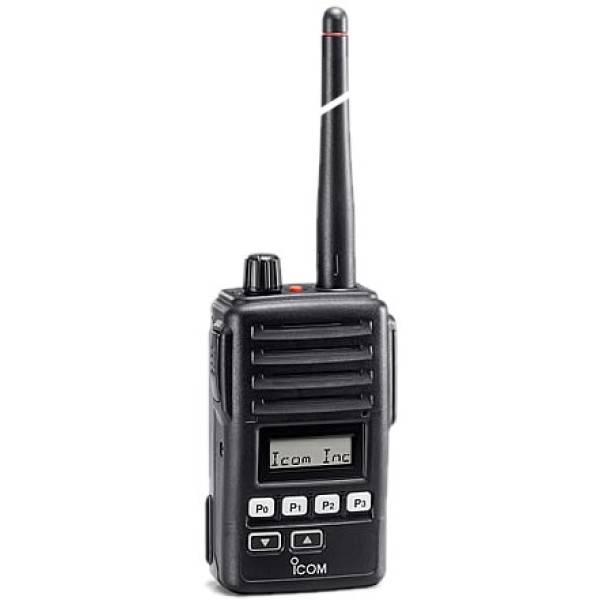Icom F51/61 ATEX Radio
£522.00 Inc. VAT
Icom is pleased to
introduce the new ATEX versions of the IC-F51 and F61, conforming to the
94/9/EC ATEX Directive. The IC-F51 series is a waterproof PMR transceiver whose
construction is equivalent to IPX7 which is the same rating as our marine
handheld models. In addition, built-in signalling capabilities and UT-110
compatible voice scrambler function eliminate the need for an optional logic
board. The IC-F51 series meets the requirements for a tough, waterproof
communications tool for use in hazardous areas such as oil rigs, areas where
flammable gases or liquids are used, and other potentially explosive
environments.
* Equivalent to IPX7
of the corresponding International Standard IEC 60529(2001). 1m depth for 30
minutes.
This ATEX approved
IC-F51/F61 transceiver offers safety approved 2-way communication preventing
explosion and fire hazard in specified hazardous areas.
Approved classes
The approved rating
is II2G EEx ib IIA T3.
Special conditions
for use:
• Must be used with
BP-227AX
Approved
accessories:
• Speaker-microphone
HM-138
Please ensure the
IC-F51/F61 ATEX rating is acceptable for the intended place of use.
These ATEX models
have all the same functions and features as non-ATEX versions including;
Waterproof
construction
The IC-F51 series has
waterproof construction which is equivalent to IPX7. The IC-F51 series can
withstand submersion in 1m depth of water for up to 30 minutes.
Tough and compact
body
The aluminium
die-cast chassis combined with a polycarbonate casing is designed to last. Its
compact dimensions of 56 (W) 97 (H) 36 (D) mm allow
the IC-F51 series to fit comfortably in your palm or shirt pocket.
Standard Lithium-Ion
battery pack
The IC-F51 series
comes with a standard 1700mAh Lithium-Ion battery pack, BP-227AX that provides
stable output power and a practical 13 hours* of operating time. Lithium-ion
batteries allow flexible charging** and have almost no memory effect.
*Typical operation;
Tx:Rx:Stand-by duty cycle=5:5:90
** Please note that
ATEX radios should not be charged in hazardous environments.





